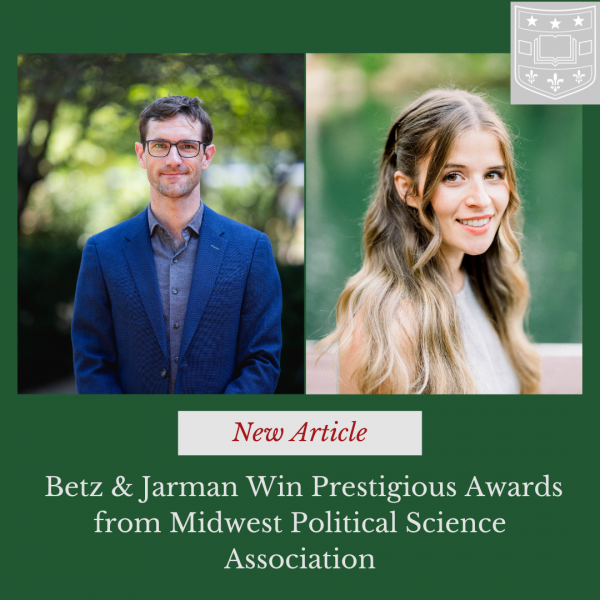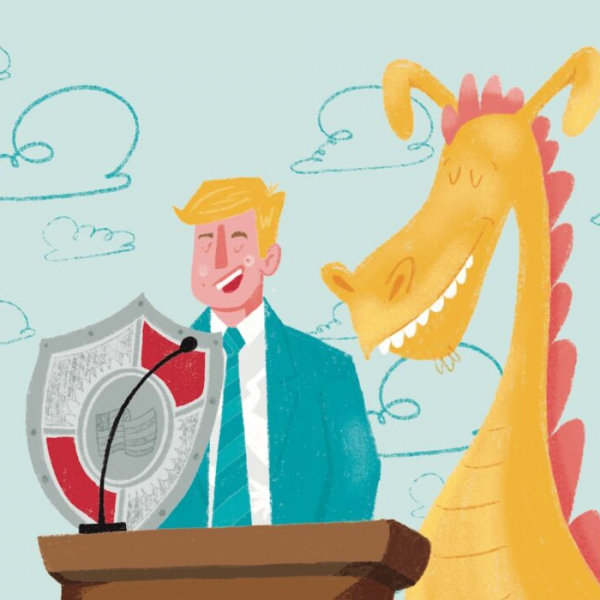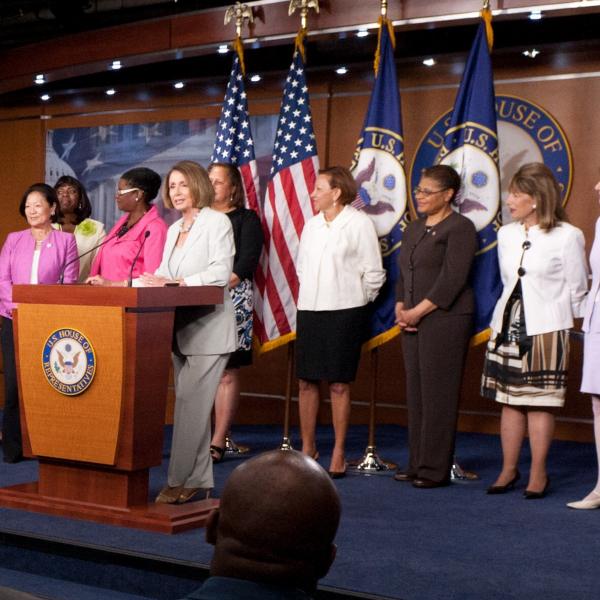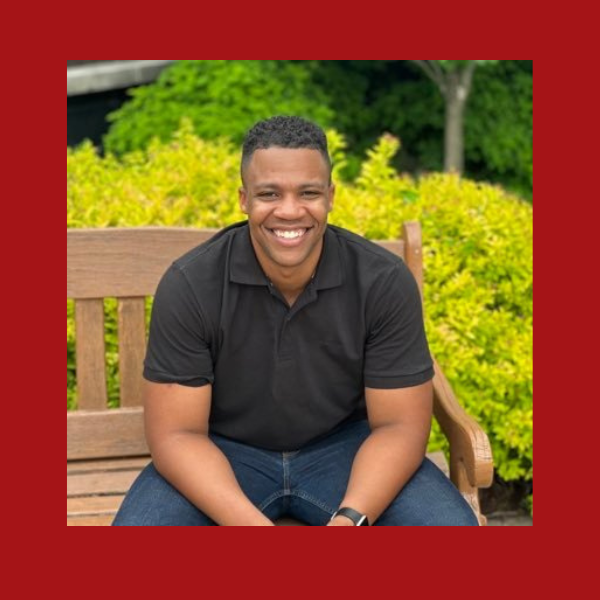Graduate student Ben Noble’s research on the American presidency has launched him into the political science spotlight and landed him a job at one of the top universities in his field.
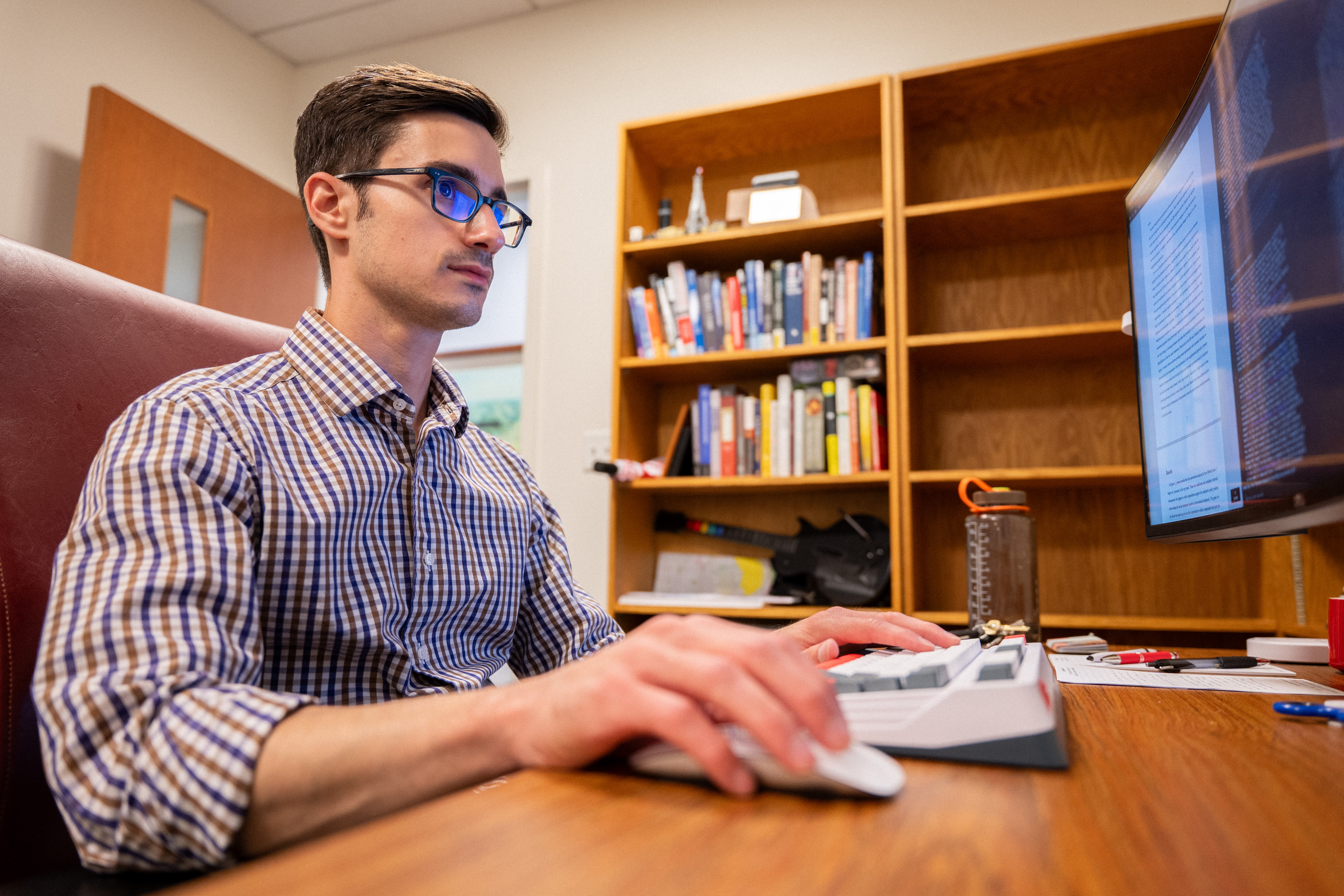
The summer before he started graduate school at WashU, Ben Noble wrote himself a letter. Putting his thoughts down helped him consider the challenges of transitioning from the professional world back into academia.
As he got the hang of being a graduate student in the political science department, a challenging top-15 program, he began to write articles about what he’d learned, offering advice on everything from choosing an advisor to preparing an academic talk.
His planning paid off. Noble’s graduate research on the American presidency went on to win several awards, including the Arts & Sciences Dean’s Award for Graduate Research Excellence and an American Political Science Association award for the best graduate student paper in his subfield.
As he prepared to defend his dissertation, he sat down with the Ampersand to reflect on his work and his time at WashU.
Have you always been interested in political science?
I majored in history during my undergrad at WashU, but I’ve always been interested in politics. I ultimately decided to pursue political science and the kinds of questions we can answer with data science. As social scientists, we think about generalizable theories and test them with empirical data. I was drawn to using those methods to answer bigger-picture questions about American institutions, especially the presidency.
You’ve won awards for your research on the presidency. Tell us about that work.
I’m interested in how American presidents have communicated with the public and Congress. I approach that not by thinking about any individual president so much as thinking about the presidency as an institution. I study the transcribed text of spoken content, looking for patterns.
Part of my research argues that presidents who are institutionally strong — for example, when there’s a unified government — tend to use a more emotional style of speaking to appeal to their base. Presidents who face a divided government tend to use more factual language to convince people of the objective logic of their ideas and to expand their coalition.
I also study how members of Congress talk about the executive branch with their constituents. It’s often the members of the non-presidential party who talk about the president the most. I argue that’s due to polarization and the fact that voters are more excited by their dislike of the other party than by warmth toward their own party. My research highlights the institutional consequences of nationalization, polarization, and negative partisanship.
What has it been like to be a political scientist during a period of such intense political polarization?
I think it has impacted the way we approach our work and teaching. People have very different beliefs about what’s happening in politics today. In the classroom, there’s an opportunity to bridge some of these divides. Some research in political science shows that when people communicate with one another in a social setting, like the classroom, they learn things about the other side that they might not have known.
You earned a bachelor's, master's, and now a doctorate from WashU. What's it been like to study at WashU at the graduate level?
I really love WashU and I’m so happy I decided to come here for my PhD. My advisor Andrew Reeves and the members of my dissertation committee have been incredibly kind and generous with their mentorship and friendship. Beyond that, I tell prospective graduate students that, in this department, everyone’s door is open for discussion, comments, and advice. There’s no feeling of competition; everyone’s very supportive and wants to see other people succeed.
What do you do when you aren’t talking about the executive branch?
For the past decade or so I’ve performed and taught improvisational comedy at The Improv Shop. It’s a fun way to get outside of yourself and engage with other people in a creative way. I also spend a lot of time playing board games. My current favorite is War Chest. It’s a bit like chess: easy to learn, but difficult to master.
What’s next for you?
I’ve accepted a job as a tenure-track assistant professor of political science at the University of California, San Diego. I’m excited because it’s one of the top political science programs in the country and I’ll be achieving my goal of becoming a professor and continuing to do research. I look forward to introducing more people to political and data science. I plan to continue research on the executive branch and executive communication. I’m interested in taking a broader look at how presidents’ speech affects the policies and choices they make.

